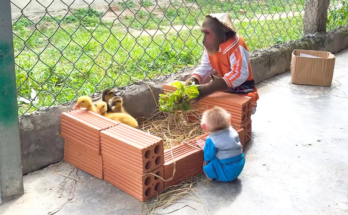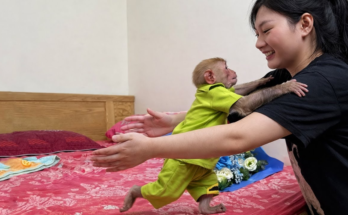It was a cold night, the sky gray and heavy with dark clouds, when the two brothers found themselves among the ruins of their former home. The war had destroyed everything—their city, their family, their childhood. Only the two of them remained. Jacob, the elder, was injured. A piece of debris had hit his leg, and every step was agony for him. Elias, barely sixteen, carried the responsibility of a man, the burden of a lifetime on his shoulders.
Aid convoys drove through the destroyed streets, but they only stopped briefly, too briefly for someone who couldn’t walk. Several times, Elias was offered a ride—to safety, to warmth, back to life. But he shook his head. “Not without my brother,” he kept saying. The helpers looked at him with pity, some even angrily. Time was short, places were limited.
Elias stayed. Night after night, he searched for blankets, for food, for hope. During the day, he dragged Jacob closer by closer to the assembly point. And during every break, he prayed. Not for himself, not for strength—only that both would be saved.
Then, one morning, as snow fell and the world seemed to breathe still, a convoy arrived, led by a young helper with serious eyes. She saw Elias, saw Jacob—and without hesitation, she made way. Both were taken in, cared for, saved.
Elias wept not from relief, but from gratitude. Not because he had survived, but because he hadn’t had to give up. In a world full of separation, loss, and loneliness, he had persevered—out of love, out of loyalty, out of hope.
And so, what remained of this story was not only the image of two brothers, but also a silent lesson: True strength lies not in running away, but in staying.



